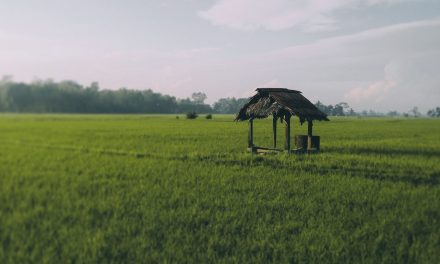Genesis 23:1–20: The Commerce of Abraham
Introduction
Death was not a feature of God’s original design for creation. Instead, death entered the world through the sin of Adam (1 Cor. 15:21–22). Death rips apart our everlasting souls from our perishable bodies, preventing us from continuing to enjoy God’s creation in this life. In Genesis 23, we come to the death of Sarah, Abraham’s wife. Death is always tragic, but Sarah’s death represents a unique problem: Sarah dies before she sees the fulfillment of God’s promises to her and to Abraham. She will not live to see her son become a great nation, and she will never personally possess any part of the land that God promised to give to Abraham and to Abraham’s offspring forever. In the eyes of the world, Sarah’s death marks the expiration of God’s opportunity to fulfill his promises to her.
God has a different perspective, however. In God’s perspective, Sarah’s life and death is simply the first installment of his interactions with her. God intends to fulfill his promises to her, and not even death can prevent the fulfillment of his promises. Abraham, then, acts in faith following the death of his wife. He insists on burying her, and specifically on burying her in a piece of land that he purchases for an extravagant sum. Abraham will never acquire much property, but he will eventually be buried on the property that he does own, alongside his wife (Gen. 25:9–10). Abraham’s actions reflect his faith not only that his offspring will inherit all the land of Canaan, but that his body should participate in the firstfruits of that inheritance at burial. In Genesis 23, we learn something important from Abraham: When we bury believers, God plants resurrection seeds.
Discussion Questions
1. How does our culture seek to avoid, minimize, hide, and ignore the reality of death? What do you think is behind this desire? How does the Bible reorient us toward the cold reality of death? What does the Bible teach about life after death? Why is this important? What does Genesis 23 teach about how should we live today under the realization that one day we too will die?
2. What is our inheritance? How does the land of Canaan symbolize and foreshadow our greater inheritance in Christ? How is the land of Canaan different from our greater inheritance in Christ? How do we pursue this inheritance? How should our promised inheritance affect our day-to-day lives? How should our promised inheritance affect the way we approach death?
3. What resources does Abraham exchange for a possession of land? Why does Abraham insist on paying such a high price for a burial plot for his wife? What does it look like under the new covenant to exchange our own resources for an eternal inheritance (cf. Luke 16:1–13)? Why is this a wise investment? What resources is God calling you to exchange for your eternal inheritance?
4. What place does the resurrection of the body play in Christian theology? How does the resurrection of the body affect the way that we treat our own bodies and the rest of creation today? How does the resurrection of the body affect the way we understand the life to come? How does the resurrection of the body affect the way that we approach death?




